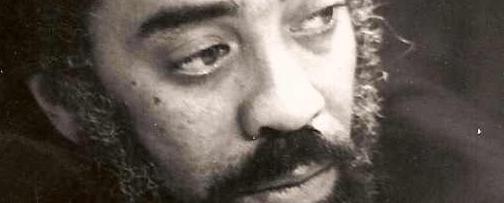








JACOB H. CARRUTHERS FOR INNER CITY STUDIES
Oscar Brown Jr.
Noted for such songs as Dat Dere, Work Song and Watermelon Man, Oscar Brown Jr. was seen as the forerunner to socially-conscious black singer/songwriters like Gil Scott Heron. An all-around entertainer, he gained popular acclaim for merging the art of songwriting with social commentary about being black in America. Brown was the oldest of two children born to Oscar Brown and Helen Clarke Browne. Brown's father envisioned his son as following in his footsteps as a successful South Side attorney and real estate broker. His son, however, had different aspirations. At 15, Brown acted on a regular network radio soap opera called 'Secret City.' When he was 21, he was a news announcer for 'Negro Newsfront,' the first daily black newscast of that time. Occasionally, he would get kicked off the air for being too controversial. In the 1950's, Brown was drafted into the Army and began doing a lot of music composing and singing during this time. After the Army, he worked for his father's real estate business but continued to write music.
In 1958, Brown attended the opening of 'A Raisin in the Sun' and was introduced to music publisher Robert Nemiroff, the husband of playwright Lorraine Hansberry. Nemiroff was impressed with Brown's compositions and brought him to New York to meet producer Al Ham of Columbia Records. Brown always saw himself as a writer but Ham saw him as a singer. He signed Brown to a recording contract and his first release was 'Sin and Soul' in 1960. Brown was able to get an engagement at the popular Village Vanguarde that opened to critical acclaim. He then began to share the bill with other jazz greats such as Miles Davis, Dizzy Gillespie and John Coltrane. By 1962, he was emcee on the television series, 'Jazz Scene USA,' a variety/talk show that featured jazz artists. In the late 1960's, Brown moved to San Francisco where he produced the musical 'Big Time Buck White,' a black power manifesto. The show made it to Broadway starring Muhammad Ali who was on a government-imposed hiatus from boxing at the time.
In 1967, he created 'Opportunity, Please Knock,' a musical program that brought together black urban youth to showcase their creativity. The Blackstone Rangers, a notorious Chicago gang, set aside "gangbanging" to work with Brown. By the 70's, Brown was an artist-in-residence at Howard University, Hunter College and Malcolm X College.
In 1983, he hosted the PBS series, 'From Jumpstreet: A Story of Black Music.' In the 90's, he had a small role on the TV show 'Roc.' He is the recipient of the Muntu Theater Award, the Paul Robeson Award and was inducted into the Black Writers Hall of Fame in 2002.
Brown was married three times and had seven children. His son, Oscar Brown III was an accomplished bassist, vocalist and composer who died in a car accident in 1996. His daughter Maggie is a jazz vocalist.
Visit our Facebook page and follow us on Twitter!
Check our EVENTS page for upcoming shows!
©2014 The Great Black Music Project. All rights reserved.